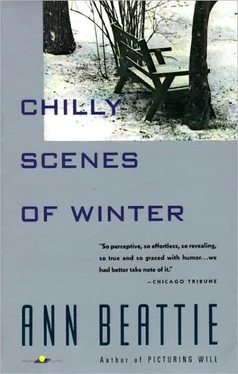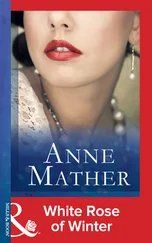Ann Beattie - Chilly Scenes of Winter
Здесь есть возможность читать онлайн «Ann Beattie - Chilly Scenes of Winter» весь текст электронной книги совершенно бесплатно (целиком полную версию без сокращений). В некоторых случаях можно слушать аудио, скачать через торрент в формате fb2 и присутствует краткое содержание. Год выпуска: 1991, Издательство: Vintage, Жанр: Современная проза, на английском языке. Описание произведения, (предисловие) а так же отзывы посетителей доступны на портале библиотеки ЛибКат.
- Название:Chilly Scenes of Winter
- Автор:
- Издательство:Vintage
- Жанр:
- Год:1991
- ISBN:нет данных
- Рейтинг книги:5 / 5. Голосов: 1
-
Избранное:Добавить в избранное
- Отзывы:
-
Ваша оценка:
- 100
- 1
- 2
- 3
- 4
- 5
Chilly Scenes of Winter: краткое содержание, описание и аннотация
Предлагаем к чтению аннотацию, описание, краткое содержание или предисловие (зависит от того, что написал сам автор книги «Chilly Scenes of Winter»). Если вы не нашли необходимую информацию о книге — напишите в комментариях, мы постараемся отыскать её.
Chilly Scenes of Winter — читать онлайн бесплатно полную книгу (весь текст) целиком
Ниже представлен текст книги, разбитый по страницам. Система сохранения места последней прочитанной страницы, позволяет с удобством читать онлайн бесплатно книгу «Chilly Scenes of Winter», без необходимости каждый раз заново искать на чём Вы остановились. Поставьте закладку, и сможете в любой момент перейти на страницу, на которой закончили чтение.
Интервал:
Закладка:
He gives the bed a final shove. The rug is a little bunched up, but so what? Sam can help him the next time he’s over. He backs up, sweating, and looks over his work. He picks up the lamp and puts it back on the desk. The room looks much better. He should rearrange the whole house. Except that there is hardly any other furniture. He sold most of it to an antique dealer, a frail old man who went from room to room exclaiming “Staffordshire! Hepplewhite! A gateleg table!” Charles just wanted all the ugly, smelly stuff out of there. The antique dealer gave him a lot of money. At least at the time he thought it was a lot of money. He opened kitchen cabinets. “Peacock Feather!” the old man said, holding a bowl to his chest. He went away and returned with his “assistant,” an enormously fat asthmatic woman who followed him from room to room repeating “Hepplewhite! A gateleg!” reverently. For a while Charles was afraid they’d just keep wandering like some poor damned souls in Dante, but after wheezing and exclaiming through the rooms they went away and came back with a blue truck and a terrier that ran yapping through the house. They did not allude to the dog. Charles could not figure out why it was there. When they did not summon the dog to leave, and it just appeared and ran out the door, Charles thought he might have been hallucinating. The fat woman lowered the antiques into piles of newspapers that she quickly wrapped around them, and the man removed drawers from dressers and tossed cushions onto the floor. “Any Sandwich?” the woman asked breathlessly, and Charles had thought that she was asking for food. She sang Billie Holiday songs as she worked; glass dishes were lowered into crates as she sang “God Bless the Child”; an oil lamp disappeared into a mound of paper as she crooned “Don’t Worry ’Bout Me.” Charles didn’t know what room to stand in — whether he should appear not to notice what was happening or whether he should offer to help. Shouldn’t they discuss money before the things were wrapped in newspaper? “You can help yourself, but don’t take too much,” the woman sang huskily, occasionally breaking off to get her breath. “Oh, Grandma!” she shouted with glee sometimes, when she saw a painted dish or a small colored photograph. The old man worked silently and very quickly. “I need your help, young fellow,” he said, and Charles helped him carry the things out. “I want to tell you something,” he said as they raised a love seat into the blue van. “That woman is my sister.” Charles waited for what he was going to be told. The man nodded once, rubbed his hands together, and said, “Let’s go.” They carried more things out. Later, in the kitchen, the woman talked about her “husband,” saying that the work was getting too rough for him. Their names were Bess and Bert, and their antique business was known as “Best Bird Antiques.” There was a cluster of flying birds painted across the back door of the van with white paint. “Best Bird Antiques” was lettered above the clouds. In three hours they were gone, and Charles had one thousand four hundred dollars. The woman climbed into the back of the van and slammed the door behind her. She was singing “A Fine Romance.” The old man gave him the money in cash. “She can’t bear to see me actually part with money,” the old man said. “I buy antiques on Mondays, if there’s more you want to part with. Can’t tell what you’ll find that you want to part with. Things to part with in the attic, probably. We don’t go into attics. But come to our store on Mondays, which is buying day. She makes that grocery day, because she can’t bear to see me fork over money for antiques! Well, thanks mighty much, and here you go.” He shoved a wad of money into Charles’s outstretched hand. Charles’s hand had been extended to shake the man’s hand good-bye. In all the confusion, he had forgotten about getting paid. The little dog barked in the front seat. The man touched his fingers to his forehead in a salute as the van pulled away. Charles waved. He later took several hand-painted plates he found to the man’s antique store. Sure enough, the fat woman wasn’t there. “Don’t look around the place, the inflated prices will make you sick,” the man said. Charles took his advice, left with twenty dollars. There was a sign in an ornate frame over the cash register that said, “Best Bird Antiques is Your Best Bet.” “We used to have a racehorse named that,” the man said, noticing that Charles was looking at the sign. “It broke its leg. I said, ‘No more racehorses,’ My sister was amenable.”
Charles goes into the kitchen and dials Pete’s number.
“What are you panting for?” Pete asks.
“I just moved some furniture around.”
“Oh,” Pete says. “Well, I’ve been straightening up around here the last couple of days, too. Furniture seems to creep forward in the room for some reason. I shoved it all back against the walls. Not right against them because of the paint, but about an inch away.”
“How’s Mom?” Charles asks.
“She’s doing just fine. I know she’d want to talk to you, except that she’s having a bath right now.” Pete whispers, “Door’s open.”
“Christ, Pete, she’s probably got a heating pad plugged in that she’ll electrocute herself with.”
“No she doesn’t,” Pete says, sounding hurt. “I told you the”—he lowers his voice—“the door’s open.”
He can picture it: she is sitting in hot water. She does not put any bubble bath in the water. She just sits there, sinks down in the tub until the hot water is collarbone level. She plays the radio. If she stays long enough (she takes many of these baths a day) she reads movie magazines, and if she stays for a very long time she starts to imagine pains and she cries. Someone has to haul her out. Charles and Pete have told the doctors about her dips. They think it’s a good idea to “soak to relax.” Even when they are told what really happens, they still say that there’s nothing wrong with a hot bath. They think she is clever to have thought of that “to relax.” She used to take Seconal and fall asleep with her chin on her collarbone, the magazines drowned in the tub, heating pads plugged into several sockets, radio blaring. If only one of them was home, they couldn’t lift her. She was angry when they appeared in the bathroom and shook her awake. “I was relaxing! I have no privacy! I had a pain in my back — I was warming the heating pad for that!” The towels always smell bad and need to be washed. There is bath powder all over the bath rug. Movie magazines with moldy covers and curled edges are stacked on the back of the toilet The bathtub and toilet are blue; the tile is brown and white-small brown and white tiles covered with a film of bath powder.
“What I called about,” Pete says, “is that I thought it might be nice to have a little welcome home celebration for Mommy.”
“Pete, you always put on that phony diction. When you’re not thinking you call her by her name, or you say, ‘your mother.’ That sounds more dignified.”
“How I wish I had a flesh-and-blood son I could kill for talking that way,” Pete says. “But you’re all I’ve got. I thought you and I were getting along better now after the — after the drink we had. The very nice time we just had.”
“Yeah. That was nice. I only mention it, Pete, because I think we might get along better if you knew about the things that bothered me. Then I know you wouldn’t do them and we’d get along even better.”
“There’s too wide a gap. I don’t think we’d ever get along very well. Maybe if you were my own flesh and blood you’d be indebted to me.”
“I don’t want you to take offense, Pete. I just want you to know that that’s a little thing that annoys me.”
Читать дальшеИнтервал:
Закладка:
Похожие книги на «Chilly Scenes of Winter»
Представляем Вашему вниманию похожие книги на «Chilly Scenes of Winter» списком для выбора. Мы отобрали схожую по названию и смыслу литературу в надежде предоставить читателям больше вариантов отыскать новые, интересные, ещё непрочитанные произведения.
Обсуждение, отзывы о книге «Chilly Scenes of Winter» и просто собственные мнения читателей. Оставьте ваши комментарии, напишите, что Вы думаете о произведении, его смысле или главных героях. Укажите что конкретно понравилось, а что нет, и почему Вы так считаете.












